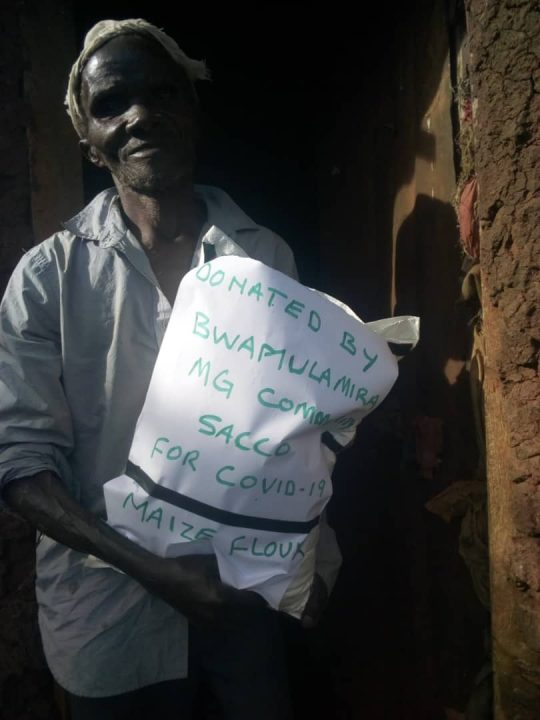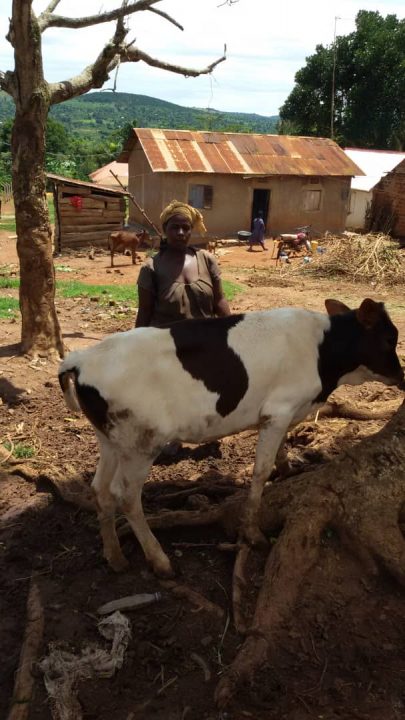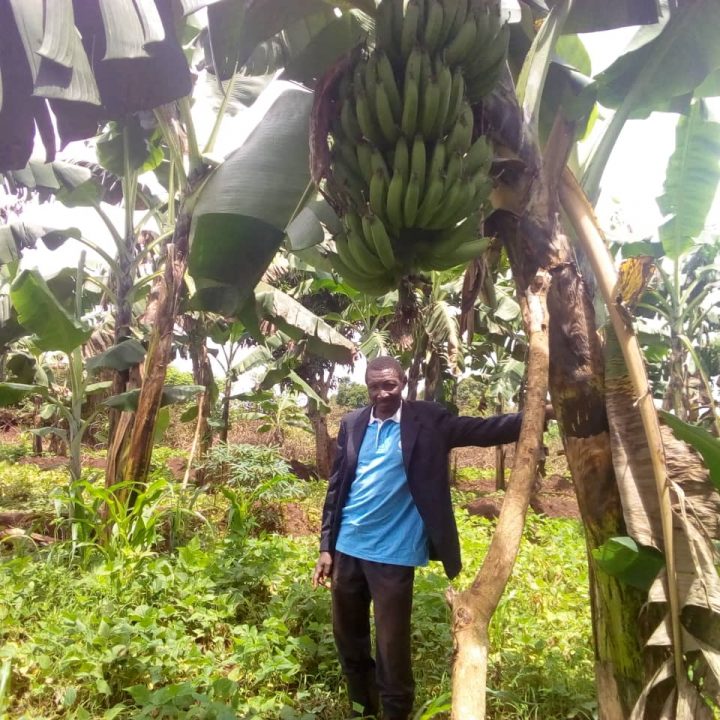Lockdown measures are affecting the most vulnerable people in Uganda, where more than 21% of the population lives in poverty. Local credit unions have stepped in to provide relief to those who cannot make ends meet.
Members of the Bwamulamira MG Saemaul Geumgo credit union, which is based in Kamengo sub-county, Mpigi District, bought and distributed 10kg of maize flour to each vulnerable person in their area.

“The Covid-19 pandemic has had substantial negative impact on people in Uganda, and the elderly have been most affected since most of the caregivers who used to support them are also out of work,” said Andy Kim, director of the International Cooperation Department of the Korean Federation of Community Credit Cooperatives (KFCC). “As a result those elderly were suffering from hunger lacking access to any food.”
The Korean term for credit union, Saemaul Geumgo, translates as community credit cooperative. The country established its first credit co-ops in 1963 and there are now over 1,300, with more than 3,200 branches across the country.
The federation works to support credit co-operatives in Korea and abroad, assisting in the development and growth of the movement. It supervises management activities, offers management advice, trains staff, and provides public relations services. In addition to its work in Korea, KFCC runs financial projects in three other countries: Uganda, Myanmar and Laos.
The project in Uganda started in 2017 through a bilateral agreement between its government and that of South Korea. The main aim is to provide affordable financial services to those living in remote areas, who are excluded from formal financial institutions. KFCC is also working with the Korea International Cooperation Agency (KOICA).
As part of the project, 11 credit co-operatives have been set up in the districts of Mpigi and Mityana, with four more under way. KFCC supports these communities by providing training to credit union members and leaders on management practices and the Saemaul Geumgo principles.
A 2018 report by Finscope Uganda found that 20% of adults were using only informal financial services while another 22% were financially excluded. According to the report, 46% of the country’s population cannot afford to save money.
Nantume Margaret, a 37-year-old mother of five, lives in Buwama subcounty, Mpigi District. She is among the 76% of Uganda’s population living in rural areas. Using a UGX 3m (£650) loan from the local credit union, Jjalamba Saemaul Geumgo, she bought a heifer and invested in her rice garden. She is now able to feed her family, generate an income and pay her children’s school fees.

As a member of the credit co-operative, she also received a bankbook with her name on it, which includes all her transactions. Some women living in rural areas lack economic power. Social and cultural norms and responsibilities place the burden of household work almost exclusively on women. Customary and inheritance laws also make it difficult for women to own land in Uganda. While they provide 70-80% of agriculture and food production labour, Ugandan women own less than 20% of lands. By joining the credit unions they are financially empowered.

Lukooto Abdul, who lives in the Nkozi subcounty Mpigi District, is a member of his local credit union, Lukonge Saemaul Geumgo. Through the credit union he was able to save money as well as take out a loan of UGX 1m (£216) to create a banana plantation which now generates monthly income of UGX 600,000 (£216). He continues to save through the credit union.
Saemaul Geumgo principles encourage members to contribute towards community development projects. This approach goes hand in hand with the Ugandan ‘Muno Mukabi’ philosophy, which can be found in villages across the country. A Muno Mukabi is a village group formed to support members during times of hardship. Each member contributes a fixed amount every month. When one member faces difficulties, the funds can be used to support them.
Using the Muno Mukabi philosophy and putting co-operative principles in action has helped people in rural areas improve their lives, says KFCC. According to the federation, the credit unions set up using the Korean model provide access to financial services to 1,677 people, all of them previously financially excluded.